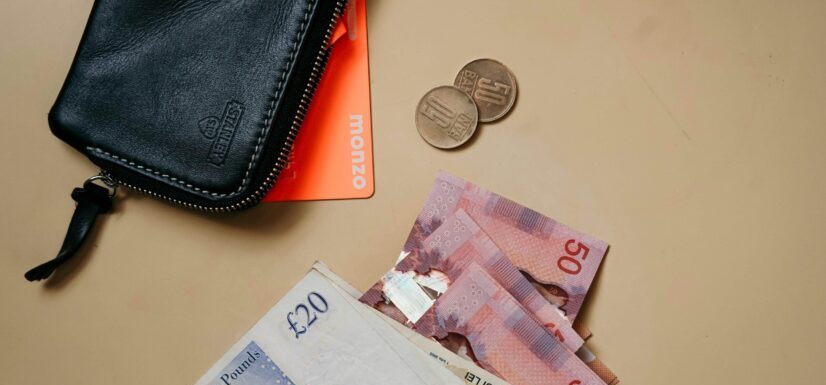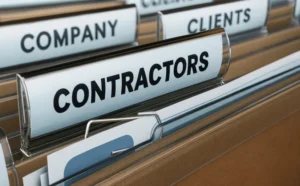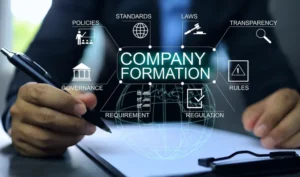
HMRC can now take unpaid taxes straight from people’s bank accounts, which is called Direct Recovery of Debts (DRD). It’s a step taken by the government to get stricter on unpaid taxes and reduce the amount of tax that goes uncollected.
According to HMRC, “the vast majority of taxpayers pay their taxes in full and on time, but a minority choose not to pay, even though they have the means to do so.” These people are causing financial losses to the UK government every year. The money that could be invested in education, infrastructure, and public services is lost due to tax evasion.
Direct Recovery of Debts (DRD) is a process that legally allows HMRC to take money straight from someone’s bank or building society account to settle tax debts. This process is used when someone is able to pay the tax but chooses not to, even after getting many reminders and chances to pay what they owe.
This process started a few years back, but stopped during the pandemic. Now, it’s back as a test and learn approach, giving HMRC a simpler way to get debts paid without long court cases. Even savings in Cash ISAs can be taken if the rules are met.
Not all taxpayers who have unpaid bills are in danger. Only certain circumstances allow HMRC to use DRD, and strict safety measures are in place.
• HMRC only uses DRD if you owe £1,000 or more in unpaid tax. This process does not apply to small debts.
• The debt must be undisputed. If you have an active appeal, HMRC can’t take the money directly from your account.
• This action happens only after HMRC has tried reaching you many times through calls, letters, or visits. The aim is to address those who haven’t fulfilled their duties, not those who simply missed a payment.
• HMRC has to make sure you still have enough money to live on. After they take what you owe, you should still have at least £5,000 left in your bank account.
• You’ll get a notice before any money is taken, and you’ll have a month to appeal or argue about the debt. If you do appeal, HMRC will wait until the issue is settled before moving forward.
These rules are in place so HMRC only goes after people who can actually afford to pay but are choosing not to.
The government wants to cut down on unpaid taxes and create a fairer system for people who pay on time. Each year, billions in taxes go uncollected. HMRC says that about £42.8 billion is owed in unpaid tax, and that has an impact on public services.
To fix this, the Treasury has put £630 million into improving how HMRC recovers debts. This includes hiring 2,400 more debt management workers and improving technology to find and recover unpaid taxes faster.
The government plans to collect an extra £11 billion by 2030 using steps like Direct Recovery of Debts (DRD). They are focusing on those who intentionally avoid paying, not on the majority who pay their taxes fully and on schedule.
The official statement makes clear that HMRC aims to support people who genuinely cannot pay:
“HMRC needs to strike the right balance between supporting businesses and individuals in genuine financial difficulty, while being assertive with those who can afford to pay but choose not to.”
If you’re facing serious money problems, the HMRC will avoid using DRD. You can ask for a payment plan to split your tax bill into smaller amounts. Contacting HMRC early can give you more options.
Besides payment plans, HMRC might offer budgeting tips or suggest you get debt advice. They prefer to help you avoid enforcement if possible. But if you ignore the debt and have the funds to pay, they might take stronger actions. This ensures those who truly need help get it, and things remain fair for taxpayers who pay on schedule.
Direct Recovery of Debt (DRD) aims to be a fair way to handle cases of intentional non-payment, but it does bring up some concerns.
• Risk of Mistakes: HMRC could incorrectly calculate the amount owed or miss an appeal. If money is wrongly taken, getting it back could take a while, which could cause temporary money issues.
• Harm to Vulnerable People: Some critics point out that the £5,000 protection might not be enough for everyone. It could still hurt people who don’t have a steady income or those who have joint accounts.
• Public Trust: Some people are afraid that with this authority, small business owners and people might get worried that money could just vanish from their accounts without warning.
The HMRC claims that it has strict procedures in place to avoid this situation and that any action will be taken only after personal contact has been attempted.
Don’t ignore letters or notices from HMRC. If you get a warning about direct recovery, take action fast.
• Be sure that the amount you owe is right. If you think there’s a mistake, find your documents and appeal within 30 days.
• If you can’t pay all that you owe, ask HMRC about a payment plan. This can help you split up payments and avoid further action.
• The sooner you contact HMRC, the more choices you’ll likely have. If you ignore them, you risk direct recovery.
• If you feel lost, get professional help. Tax advisors, accountants, or charities like Citizens Advice can show you what to do.
• Always open and respond to HMRC letters quickly. Ignoring them can make things worse fast.
• Keep your tax and money records organized. This way, you can easily challenge mistakes or disagreements. Good records also help you see what you owe.
• Check your bank accounts often. This helps you know your balance and spot anything strange right away.
• If you work for yourself or have a business, plan for tax payments. Save money during the year instead of waiting until the last minute.
• The best way to avoid HMRC taking money straight from your bank account is to be active and stay in touch with them.
Most people won’t see any difference because they already pay their taxes when they’re due. But if you’ve been dodging tax bills, things are about to get tougher. The government is making it clear that they’ll get unpaid taxes one way or another, even straight from your bank account.
This way to get out of debt is a strong step and is only for those trying to skip out on paying. If you’re struggling financially, there are protections and ways to appeal. The main thing is, if you owe taxes, talk to HMRC right away. Pay what you can, set up a payment plan if you need to, and appeal if you think there’s a mistake. If you ignore them, you could lose a say in how your debt is collected.

Self-Assessment Tax Payment Guide: Key Dates and Methods Doing...

How To Register For CIS As A Contractor: Step-By-Step...

How To Register For CIS As A Subcontractor If...

Company Formation: Step-by-Step Guide Starting a business is exciting;...
Ready to reach out to us! Request a call back now for a personalized quote!

You can talk to us on WhatsApp